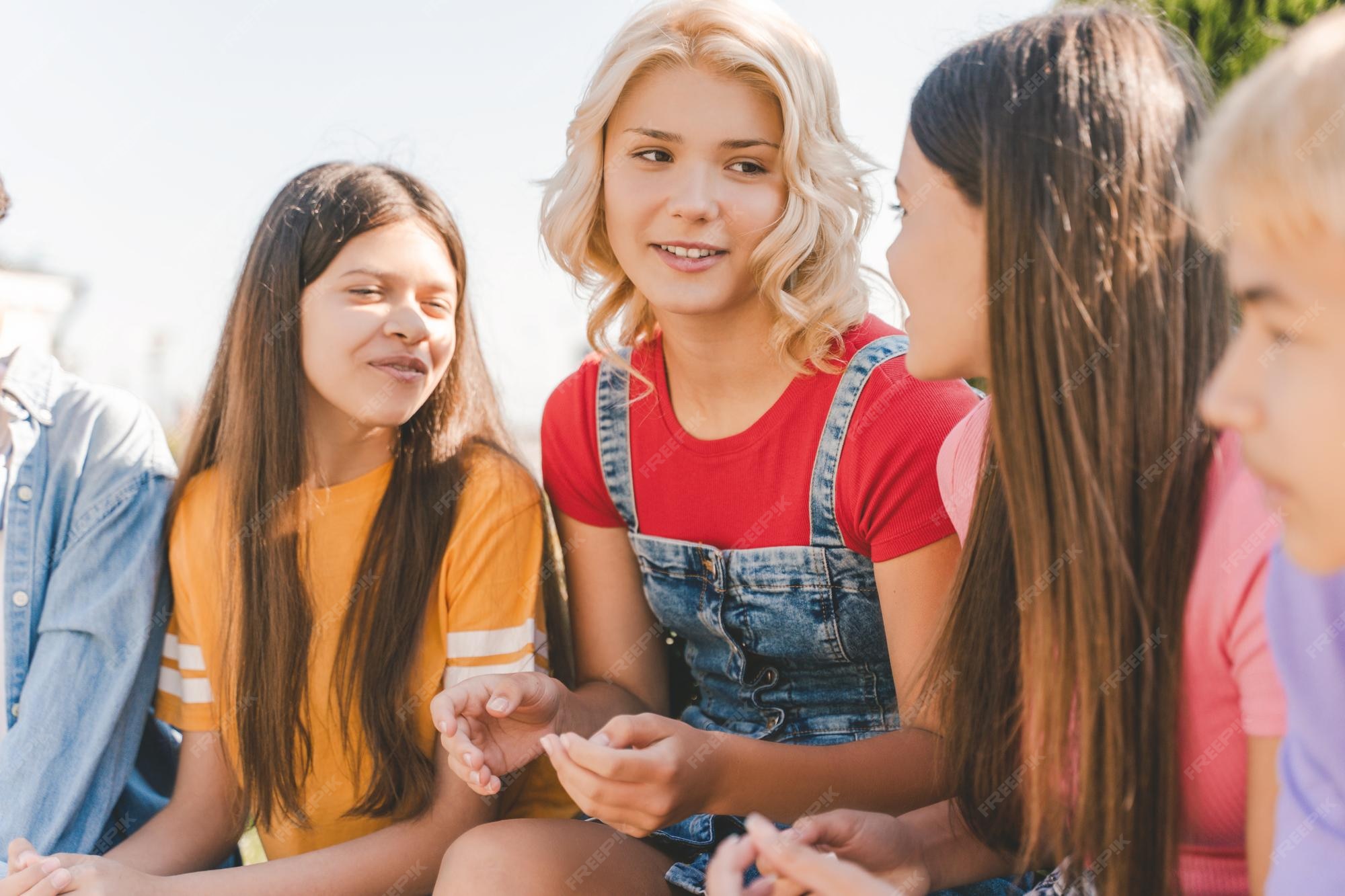
My Child is Mean to Her Friends: Understanding and Addressing the Behavior
Discovering that my child is mean to her friends can be a distressing experience for any parent. It’s natural to feel concerned, confused, and even a bit embarrassed. However, understanding the underlying reasons behind this behavior and taking proactive steps to address it is crucial for your child’s social development and overall well-being. This article aims to provide a comprehensive guide for parents navigating this challenging situation, offering insights into potential causes and practical strategies for fostering empathy and positive social interactions.
Understanding the Root Causes
Before jumping to conclusions, it’s essential to consider the various factors that might be contributing to why my child is mean to her friends. Children’s behavior is often a reflection of their internal experiences and external influences. Some common reasons include:
- Imitation: Children often learn by observing the behavior of those around them, including parents, siblings, and peers. If they witness aggressive or unkind interactions, they might unconsciously mimic these behaviors.
- Attention-Seeking: Sometimes, negative attention is better than no attention at all. A child might act mean to get a reaction from their friends or from adults.
- Lack of Empathy: Empathy, the ability to understand and share the feelings of others, is a skill that develops over time. Some children may struggle with empathy, making it difficult for them to recognize the impact of their actions on their friends.
- Emotional Regulation Difficulties: Children who have difficulty managing their emotions, such as anger, frustration, or anxiety, may lash out at their friends.
- Power Dynamics: Bullying behavior often stems from a desire to feel powerful or in control. A child might act mean to exert dominance over their peers.
- Jealousy or Insecurity: Feelings of jealousy or insecurity can lead to negative behaviors. A child might be mean to a friend they perceive as a threat or someone who has something they want.
- Social Skills Deficits: Some children simply lack the social skills necessary to navigate friendships effectively. They may not know how to communicate their needs or resolve conflicts in a positive way.
- Stress or Trauma: Significant life events, such as a family move, a new sibling, or exposure to trauma, can impact a child’s behavior.
Identifying the Specific Behavior
It’s important to identify the specific behaviors that are causing concern. What does it mean when my child is mean to her friends? Are they:
- Name-calling or teasing?
- Excluding friends from activities?
- Spreading rumors or gossip?
- Being physically aggressive?
- Using manipulative tactics?
- Engaging in cyberbullying?
Understanding the specific nature of the behavior will help you tailor your intervention strategies effectively. Observe your child’s interactions with their friends, listen to their conversations, and gather information from teachers or other adults who interact with them.
Strategies for Addressing the Behavior
Once you have a better understanding of the underlying causes and specific behaviors, you can begin to implement strategies to address the issue. Here are some effective approaches:
Open Communication
Talk to your child about their behavior in a calm and non-judgmental manner. Ask them why they are acting this way and listen to their perspective. Avoid lecturing or scolding, as this can shut down communication. Instead, focus on understanding their feelings and motivations. Explain to your child how their actions affect others. Help them understand the concept of empathy and how it feels to be on the receiving end of their behavior. Use concrete examples to illustrate the impact of their words and actions. When my child is mean to her friends, it’s vital to make sure they understand the implications.
Teaching Empathy and Perspective-Taking
Help your child develop empathy by encouraging them to consider the feelings of others. Ask questions like, “How do you think that made your friend feel?” or “What would you do if someone said that to you?” You can also use stories, movies, and real-life situations to illustrate different perspectives. Role-playing can be a powerful tool for helping children practice empathy. Act out different scenarios and encourage your child to take on the role of the friend who is being treated meanly. This will help them understand how their actions affect others.
Modeling Positive Behavior
Children learn by observing the adults in their lives. Model respectful and empathetic behavior in your own interactions with others. Show your child how to resolve conflicts peacefully, communicate effectively, and treat others with kindness. Ensure that you are demonstrating positive social skills and emotional regulation in your own life. If you struggle with these skills, consider seeking professional help.
Setting Clear Expectations and Boundaries
Establish clear expectations for your child’s behavior and consistently enforce consequences for unacceptable actions. Let them know that being mean to their friends is not acceptable and that there will be consequences for such behavior. Consequences should be age-appropriate and related to the behavior. For example, you might restrict their access to electronics or limit their time with friends. Praise and reward your child when they demonstrate positive social behavior. This will reinforce the desired behavior and encourage them to continue acting in a kind and respectful manner.
Teaching Social Skills
If your child lacks social skills, consider teaching them specific skills, such as how to initiate conversations, how to share, how to take turns, and how to resolve conflicts peacefully. You can use books, games, and role-playing to teach these skills. Social skills training can be particularly helpful for children who struggle with social interactions. Consider enrolling your child in a social skills group or working with a therapist who specializes in this area. When my child is mean to her friends, it’s often because they don’t know how to behave appropriately. [See also: Social Skills for Children]
Addressing Underlying Emotional Issues
If you suspect that your child’s behavior is related to underlying emotional issues, such as anxiety, depression, or trauma, seek professional help. A therapist can help your child address these issues and develop coping mechanisms. Therapy can provide a safe and supportive environment for your child to explore their feelings and learn healthy ways to manage their emotions. If your child has experienced trauma, it’s especially important to seek professional help. Trauma can have a significant impact on a child’s behavior and emotional well-being.
Working with the School
If the behavior is occurring at school, work with your child’s teachers and school administrators to address the issue. They can provide valuable insights and support. The school may have resources available to help your child develop social skills and manage their behavior. Communicate openly with the school staff and collaborate on a plan to address the behavior. School psychologists and counselors can provide additional support and guidance. If my child is mean to her friends at school, it’s a problem that needs to be addressed collaboratively.
Monitoring and Supervision
Closely monitor your child’s interactions with their friends, especially in unsupervised settings. This will allow you to intervene if necessary and provide guidance. Limit your child’s exposure to negative influences, such as violent video games or television shows. Supervise their online activity and make sure they are not engaging in cyberbullying. Be aware of your child’s social circle and the influences of their peers.
When to Seek Professional Help
While many cases of children being mean to their friends can be addressed with the strategies outlined above, there are times when professional help is necessary. Consider seeking professional help if:
- The behavior is persistent and does not improve with your interventions.
- The behavior is severe and causes significant harm to others.
- The behavior is accompanied by other concerning symptoms, such as anxiety, depression, or aggression.
- You suspect that your child has underlying emotional or behavioral issues.
- You are feeling overwhelmed or unable to manage the behavior on your own.
A therapist or counselor can provide a comprehensive assessment and develop a tailored treatment plan to address your child’s specific needs. Early intervention can prevent the behavior from escalating and improve your child’s long-term social and emotional well-being. If my child is mean to her friends and the situation is worsening, professional help is crucial. [See also: Finding a Child Therapist]
Preventing Future Issues
In addition to addressing the current behavior, it’s important to take steps to prevent future issues. Here are some strategies for fostering positive social interactions:
- Promote Empathy: Continue to encourage empathy and perspective-taking in your child.
- Teach Conflict Resolution Skills: Help your child learn how to resolve conflicts peacefully and respectfully.
- Foster Positive Relationships: Encourage your child to build and maintain healthy friendships.
- Provide Opportunities for Social Interaction: Provide your child with opportunities to interact with peers in supervised settings.
- Model Positive Behavior: Continue to model respectful and empathetic behavior in your own interactions.
Conclusion
Discovering that my child is mean to her friends can be a challenging and emotional experience for parents. However, by understanding the underlying causes of the behavior, implementing effective strategies, and seeking professional help when necessary, you can help your child develop empathy, improve their social skills, and build positive relationships. Remember that patience, consistency, and open communication are key to success. By addressing the issue proactively, you can help your child grow into a kind, compassionate, and well-adjusted individual. It’s important to remember that children are still learning and developing, and with your guidance and support, they can overcome their challenges and thrive socially.

